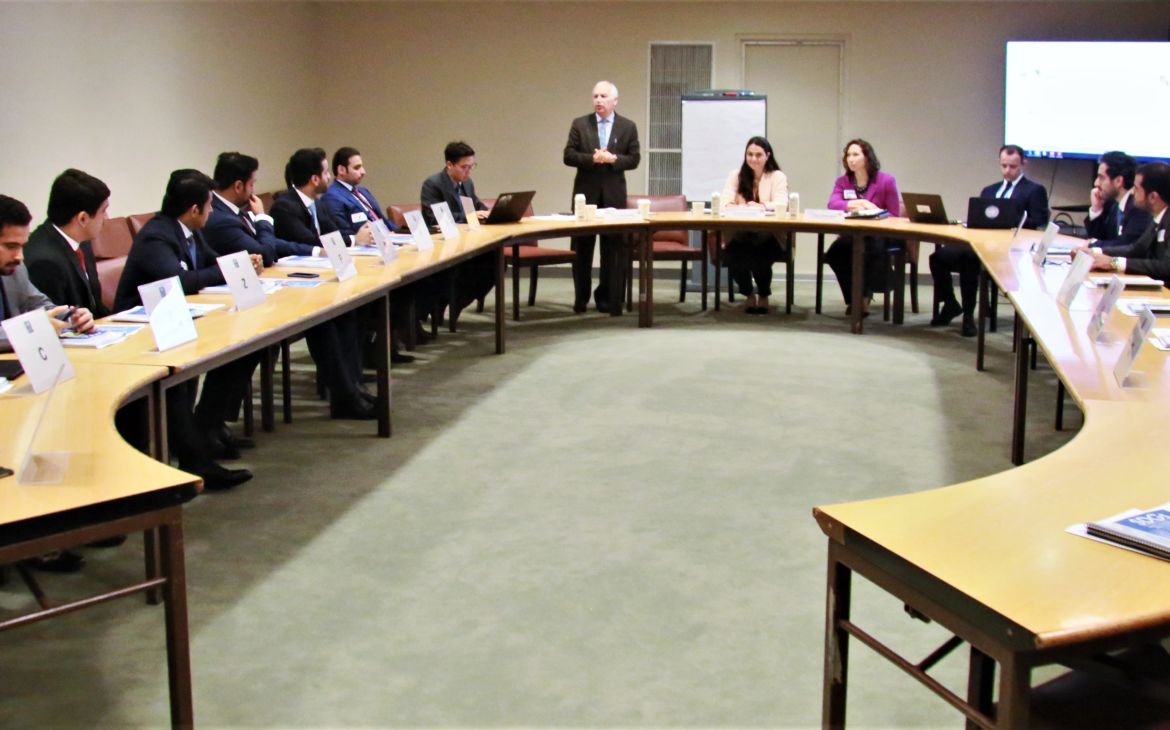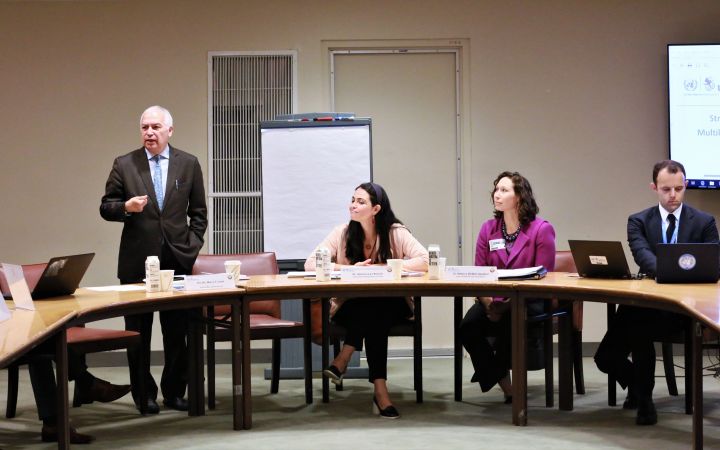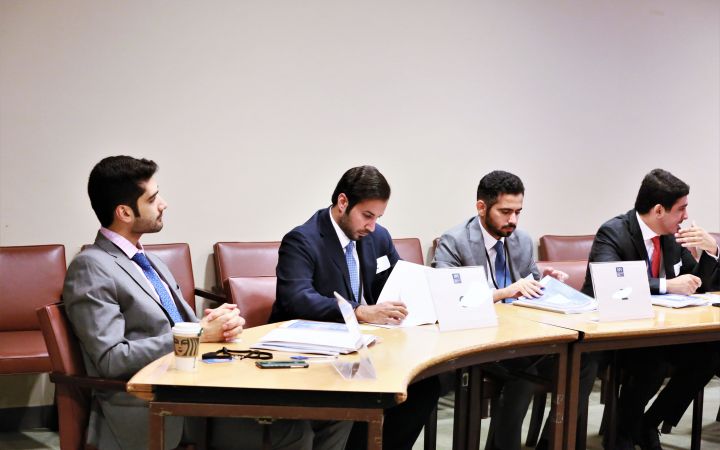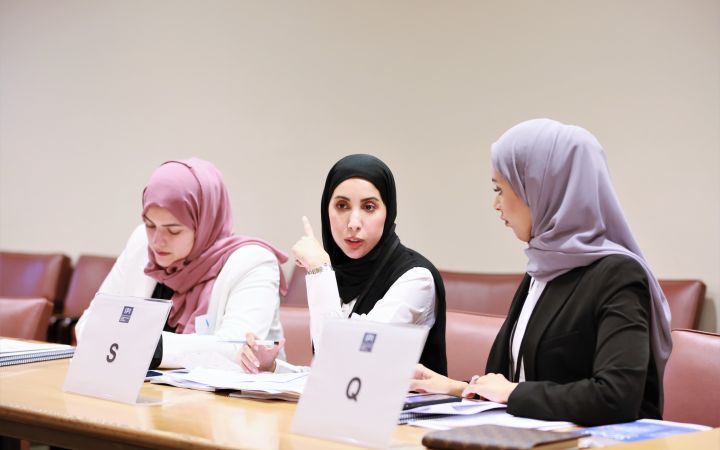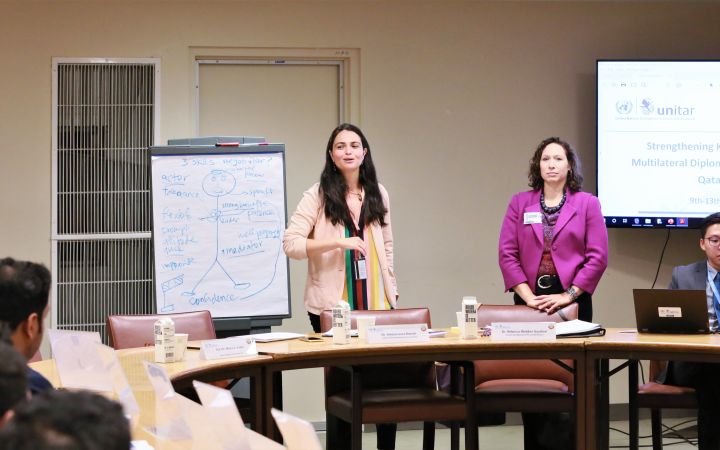9 September 2019, New York, USA – The United Nations Institute for Training and Research’s (UNITAR) New York Office kicked off the first session of the induction course for Qatari Diplomats in Conference Room D of the United Nations Headquarters. The program for the new diplomats includes courses on negotiation, the General Assembly, the Responsibility to Protect and Rules and Procedures of the UN.
UNITAR’s Head of Office for the New York Office, Mr. Marco A. Suazo began the session by introducing the panelists, Dr. Jimena Leiva-Roesch and Dr. Rebecca Webber Gaudiosi. He then informed the delegates of the book written by Dr. Leiva-Roesch, Dr. Weber and Ye-Min Wu titled, ‘Negotiating at the United Nations: A Practitioner’s Guide’, on which the training was based. Following the introduction of the panelists, the new delegates introduced themselves to the panelists.
The first session saw 14 diplomats partake in a simulation on negotiation at a bilateral and multilateral level on the Sustainable Development Goals (SDGs), specifically on water. They began by first writing down three skills they believed a good diplomat should have. Prior to starting the exercise, the panelists provided five key points for the participants to keep in mind while undergoing the simulation. For the exercise itself, each participant was given a country to represent, and a brief on what their country wanted, then all were shown a draft outcome to debate on.
The delegates used a coffee break to engage in informal meetings with the aim of gathering information on every country. Right after this segment, the delegates broke up into predetermined groups based on actual multilateral groups: the European Union, the Group of 77 and the JUSCANZ, an informal group with no permanent membership that includes the United States, Japan, Australia and New Zealand. The overall aim of the simulation was for delegates to understand the mechanics and flow of real negotiations as well as have practiced skills needed to thrive in a multilateral setting
Afterward, they regrouped and shared suggested amendments to the proposed sample outcome. The remainder of the session was spent practicing negotiation skills as they attempted to reach an outcome that no one objected. Throughout, Dr. Leiva-Roesch and Dr. Webber Gaudiosi provided tips and tools for the participants to use when negotiating. Following the conclusion of the simulation, the panelists offered six key points to remember while moving forward and congratulated everyone on managing to reach a consensus, expressed in the outcome they drafted. At the end these exercises, delegates admitted they had gained more confidence in the negotiation process.


